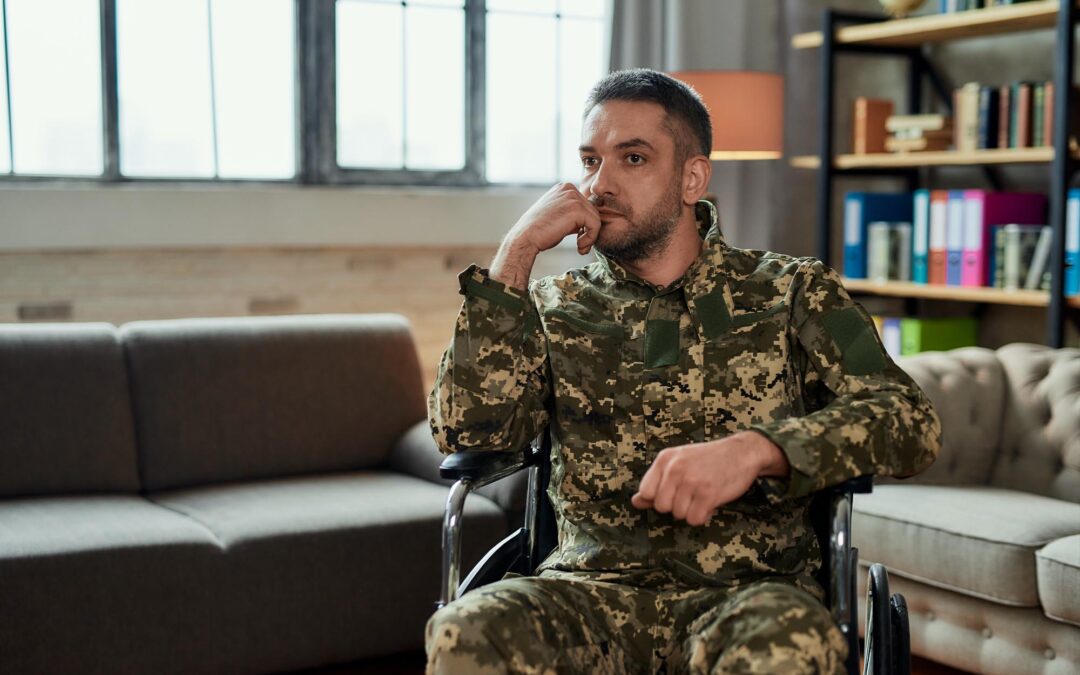Understanding Anxiety and Its Impact on Daily Life
Anxiety is your body’s natural alarm system. It warns you about potential dangers and helps you deal with difficult situations. However, when this condition goes beyond normal levels and becomes a disorder, it may require professional help and suitable treatment options.
Disorders are among the most prevalent mental health issues, affecting millions globally. Unlike occasional worry or stress, these conditions create ongoing patterns of fear that disrupt your daily functioning.
The Profound Impact of This Condition on Daily Life
The effects of anxiety on your everyday life can be significant:
- Work performance: Difficulty concentrating and feeling overwhelmed in decision-making
- Relationships: Strain caused by constant worry and avoidance behaviors
- Physical health: Insomnia, headaches, and digestive problems as symptoms
- Social activities: Limiting yourself by avoiding situations that trigger anxiety
When this condition starts interfering with your life this way, a combination of medication and therapy often proves to be the most effective route to recovery. You have the right to regain control over your daily experiences and rediscover the confidence that it has taken from you.
Exploring Treatment Options
When anxiety symptoms significantly disrupt your work, relationships, or daily activities, professional intervention becomes essential. Mental health professionals can accurately assess your condition and develop a comprehensive treatment strategy tailored to your specific needs, such as those offered in the mental health treatment programs.
Exploring Treatment Options
Medication represents one of the most effective treatment approaches available today. These medications work by targeting specific neurotransmitters in your brain to reduce symptoms and restore balance. You have several medication classes to consider:
- Selective Serotonin Reuptake Inhibitors (SSRIs) – first-line treatments that increase serotonin levels
- Serotonin-Norepinephrine Reuptake Inhibitors (SNRIs) – target both serotonin and norepinephrine
- Benzodiazepines – provide rapid relief for acute anxiety episodes
- Beta-blockers – manage physical symptoms like rapid heartbeat
Therapy Options
Therapy options complement medication treatment effectively. Here are some therapy approaches you can explore:
- Cognitive-behavioral therapy (CBT) helps you identify and change negative thought patterns.
- Dialectical behavior therapy (DBT) focuses on emotional regulation skills.
- Group therapy sessions provide peer support and shared coping strategies.
Holistic Approaches
Holistic approaches integrate traditional treatments with alternative methods like meditation, breathwork, and mindfulness practices to address your mental, physical, and spiritual well-being comprehensively.
Understanding Different Types of Anxiety Disorders
Anxiety disorders come in various forms, each with its own challenges and symptoms that need specific treatment methods. Knowing these differences can help you identify the type of anxiety you may be experiencing and make informed decisions about your treatment.
1. Generalized Anxiety Disorder (GAD)
Generalized Anxiety Disorder (GAD) affects millions of people who experience persistent, excessive worry about everyday situations. You might find yourself constantly anticipating disaster or feeling unable to control anxious thoughts about work, health, family, or finances. This chronic worry often interferes with concentration and decision-making abilities.
2. Panic Disorder
Panic disorder creates intense episodes of fear that peak within minutes, accompanied by physical symptoms like rapid heartbeat, sweating, and shortness of breath. These panic attacks can occur unexpectedly, leading many people to develop a fear of having future attacks, which can severely limit daily activities.
3. Social Anxiety Disorder
Social anxiety disorder involves intense fear of social situations where you might be judged or scrutinized by others. This condition goes beyond normal shyness, creating significant distress during interactions, public speaking, or even routine activities like eating in public or using public restrooms.
Other common anxiety disorders include:
- Specific phobias – intense fear of particular objects or situations
- Agoraphobia – fear of places where escape might be difficult
- Separation anxiety disorder – excessive fear when separated from loved ones
Each disorder requires tailored medication approaches and therapeutic interventions to address its specific symptom patterns and underlying mechanisms.
Recognizing Symptoms and Getting Diagnosed
Symptoms of anxiety disorders manifest differently across individuals, making recognition challenging for many people. You might experience persistent worry that feels impossible to control, even when you know your concerns are excessive. Physical symptoms often accompany these mental struggles, creating a cycle that can feel overwhelming.
Physical symptoms of anxiety disorders include:
- Rapid heartbeat or palpitations
- Sweating and trembling
- Shortness of breath or feeling like you can’t catch your breath
- Muscle tension and headaches
- Digestive issues and nausea
- Fatigue despite feeling constantly “on edge”
Emotional and behavioral symptoms of anxiety disorders present as:
- Restlessness and irritability
- Difficulty concentrating or making decisions
- Sleep disturbances, including trouble falling or staying asleep
- Avoidance of situations that trigger anxiety
- Panic attacks with intense fear and physical discomfort
Getting a proper diagnosis requires consultation with a qualified healthcare professional who can evaluate your specific symptoms. Mental health professionals use standardized assessment tools and clinical interviews to determine if your experiences meet the criteria for an anxiety disorder. They’ll examine the duration, intensity, and impact of your symptoms on daily functioning.
Early diagnosis opens the door to effective treatment options, including anxiety medication and therapeutic interventions. You deserve professional support to understand what you’re experiencing and develop a comprehensive treatment plan tailored to your specific needs.
How Anxiety Medications Work: A Closer Look at Mechanisms and Effects
Anxiety medications target specific neurotransmitter systems in your brain to restore chemical balance and reduce symptoms. Understanding how these medications function helps you make informed decisions about your treatment options.
SSRIs (Selective Serotonin Reuptake Inhibitors)
SSRIs (Selective Serotonin Reuptake Inhibitors) represent the most commonly prescribed class of anxiety medications. These drugs work by blocking the reabsorption of serotonin in your brain, allowing more of this mood-regulating neurotransmitter to remain available. Popular SSRIs include:
- Sertraline (Zoloft)
- Escitalopram (Lexapro)
- Fluoxetine (Prozac)
- Paroxetine (Paxil)
SNRIs (Serotonin-Norepinephrine Reuptake Inhibitors)
SNRIs (Serotonin-Norepinephrine Reuptake Inhibitors) take a dual approach by affecting both serotonin and norepinephrine levels. This combination often proves effective for individuals who don’t respond adequately to SSRIs alone. Common SNRIs include venlafaxine (Effexor) and duloxetine (Cymbalta).
Other Medication Classes
Other medication classes serve specific anxiety treatment needs:
- Benzodiazepines provide rapid relief for acute anxiety episodes but carry dependency risks with long-term use.
- Beta-blockers help manage physical symptoms like rapid heartbeat and trembling.
- Buspirone offers an alternative for those who cannot tolerate SSRIs or SNRIs.
Timeframes for Therapeutic Effects
Each medication class requires different timeframes to achieve therapeutic effects:
- SSRIs and SNRIs typically need 4-6 weeks to reach full effectiveness.
- Benzodiazepines work within hours but aren’t suitable for extended treatment periods.
For more detailed information on the mechanisms of these medications, you can refer to this comprehensive resource.
The Role of Therapy and Lifestyle Changes in Managing Anxiety Disorders
Cognitive-Behavioral Therapy (CBT) serves as a powerful complement to medications, creating a comprehensive treatment approach that addresses both the chemical and psychological aspects of these disorders. CBT helps you identify and change negative thought patterns that fuel this condition, while teaching practical coping strategies for managing symptoms in real-world situations.
The therapeutic process, such as those offered by Advanced Therapy Center in Medford, MA, involves examining the connections between your thoughts, feelings, and behaviors. You’ll learn to recognize anxiety triggers and develop healthier responses to stressful situations. CBT sessions typically include homework assignments and skill-building exercises that reinforce what you’ve learned during therapy appointments.
In some cases, individuals may experience nightmares related to their anxiety issues. These nightmares can further exacerbate the anxiety disorder, making it crucial to address them within the therapeutic framework.
Lifestyle modifications play an equally important role in anxiety management. Key changes that support your recovery include:
- Regular exercise – Physical activity naturally reduces stress hormones and releases mood-boosting endorphins
- Sleep hygiene – Maintaining consistent sleep schedules helps regulate your nervous system
- Nutrition – Limiting caffeine and alcohol while eating balanced meals stabilizes mood
- Stress management – Incorporating relaxation techniques like deep breathing or meditation
- Social support – Building connections with family, friends, or support groups
These lifestyle modifications work synergistically with both medication and therapy from resources like Advanced Therapy Center, creating a foundation for long-term anxiety management and improved quality of life.
In addition to addressing anxiety disorders, it’s important to acknowledge that these therapeutic options can also be beneficial for individuals coping with depression. By leveraging these therapy options and mental health resources effectively, one can achieve significant improvements in their overall mental well-being.
Personalized Treatment Planning and Ongoing Support at Advanced Therapy Center
Every person’s experience with this condition is unique, requiring individualized care plans that address specific symptoms, triggers, and life circumstances. At Advanced Therapy Center, mental health professionals recognize that a one-size-fits-all approach rarely delivers optimal results when managing these disorders.
Your treatment team develops a comprehensive plan that considers your medical history, current symptoms, lifestyle factors, and personal preferences. This personalized approach ensures that medication selections align with your specific needs, whether you’re dealing with generalized symptoms, panic attacks, or social issues.
The center’s approach to individualized care includes:
- Thorough initial assessments to understand your unique anxiety profile
- Customized medication protocols based on your response patterns and side effect tolerance
- Flexible therapy combinations that may include CBT, DBT, or holistic approaches
- Integrated treatment plans addressing both anxiety and any co-occurring conditions
Regular follow-up appointments form the backbone of successful anxiety treatment. These scheduled check-ins allow your healthcare team to monitor medication effectiveness, track symptom improvements, and identify any emerging concerns. You can expect frequent adjustments during the initial treatment phase as your body adapts to new medications.
Your treatment plan evolves with your progress. What works during the first month may need refinement as your symptoms change or as you develop new coping strategies through therapy sessions. If you are also struggling with trauma-related disorders, the center offers specialized trauma treatment in Massachusetts for comprehensive outpatient treatment and psychiatric day treatment.
Moreover, should you find yourself facing depressive disorders along with anxiety, Advanced Therapy Center provides extensive depression treatment in Massachusetts as part of its holistic approach to mental health care.
In line with our commitment to providing comprehensive care, we also explore alternative models such as PACE (Program of All-Inclusive Care for the Elderly), which is designed to meet the diverse needs of elderly patients through a structured support system. Furthermore, we stay informed about public health trends and guidelines that could impact our patients’ mental health journey. For instance, recent studies have shed light on the relationship between mental health and chronic physical conditions, emphasizing the importance of an integrated approach to treatment.
For more information on how we can assist you in managing and overcoming these challenges, feel free to contact us.
Seeking Professional Help for Comprehensive Care
Taking the first step toward managing this condition requires courage and commitment to your mental health journey. You deserve comprehensive care that addresses both the psychological and physiological aspects of these disorders through evidence-based treatment approaches.
Healthcare professionals can provide you with a holistic treatment plan that combines:
- Proper evaluation and diagnosis of your specific anxiety disorder
- Appropriate anxiety medication prescriptions when clinically indicated
- Evidence-based therapy modalities like CBT and DBT
- Lifestyle modification guidance and support
- Regular monitoring and treatment adjustments
Advanced Addiction Center offers specialized outpatient rehab Massachusetts services for individuals dealing with anxiety and co-occurring mental health conditions. Their comprehensive approach includes individual counseling, behavioral therapies, and medication-assisted treatment options tailored to your unique needs.
You don’t have to navigate anxiety alone. Professional support provides you with the tools, strategies, and medical interventions necessary for lasting recovery. Contact a qualified healthcare provider today at (781) 560-6067 to begin your journey toward better mental health and improved quality of life.
Understanding how symptoms manifest varies greatly from person to person.



